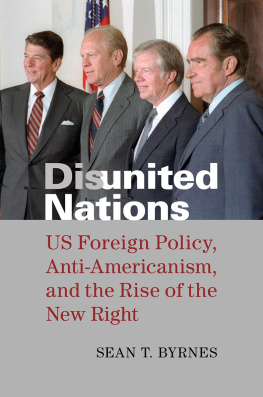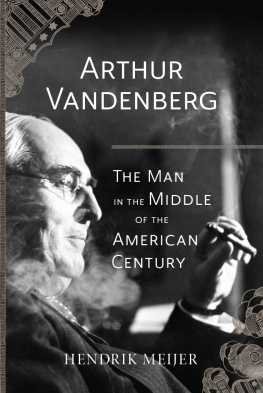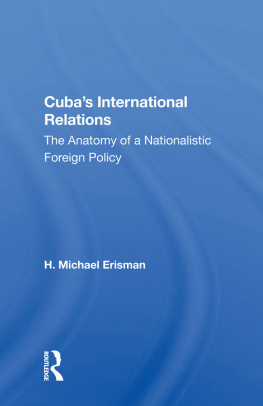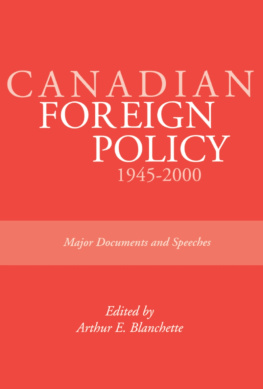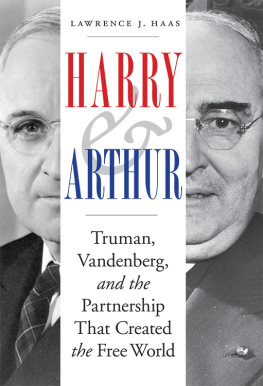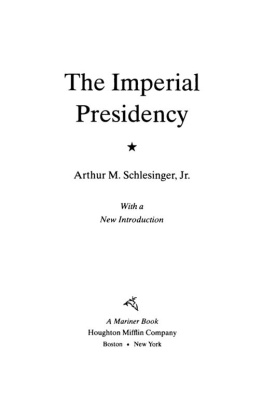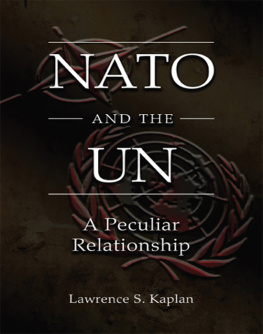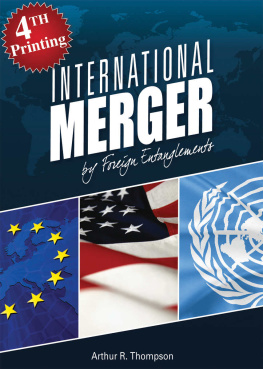
The Conversion of Senator Arthur H. Vandenberg
The Conversion of Senator Arthur H. Vandenberg
From Isolation to International Engagement
L AWRENCE S . K APLAN

Due to variations in the technical specifications of different electronic reading devices, some elements of this ebook may not appear as they do in the print edition. Readers are encouraged to experiment with user settings for optimum results.
Copyright 2015 by The University Press of Kentucky
Scholarly publisher for the Commonwealth, serving Bellarmine University, Berea College, Centre College of Kentucky, Eastern Kentucky University, The Filson Historical Society, Georgetown College, Kentucky Historical Society, Kentucky State University, Morehead State University, Murray State University, Northern Kentucky University, Transylvania University, University of Kentucky, University of Louisville, and Western Kentucky University.
All rights reserved.
Editorial and Sales Offices: The University Press of Kentucky 663 South Limestone Street, Lexington, Kentucky 40508-4008 www.kentuckypress.com
Library of Congress Cataloging-in-Publication Data
Kaplan, Lawrence S.
The conversion of Senator Arthur H. Vandenberg : from isolation to international engagement / Lawrence S. Kaplan.
pages cm. (Studies in conflict, diplomacy and peace)
Includes bibliographical references and index.
ISBN 978-0-8131-6055-9 (hardcover : alk. paper)
ISBN 978-0-8131-6060-3 (pdf) ISBN 978-0-8131-6061-0 (epub)
1. Vandenburg, Arthur H. (Arthur Hendrick), 18841951. 2. United States. Congress. SenateBiography. 3. InternationalistsUnited StatesBiography. 4. United StatesForeign relations19451953. 5. United StatesForeign relations19331945. 6. IsolationismUnited StatesHistory20th century. 7. Republican Party (U.S. : 1854 )Biography. 8. LegislatorsUnited StatesBiography. I. Title.
E748.V18K37 2015
328.73'092dc23
[B] 2014047972
This book is printed on acid-free paper meeting the requirements of the American National Standard for Permanence in Paper for Printed Library Materials.

Manufactured in the United States of America.

| Member of the Association of American University Presses |
In memory of Wayne S. Cole, 19222013, historian of isolationism
Contents
Preface
The inspiration for this book goes back to 1951, when, as a fledgling historian with the Historians Office, Office of the Secretary of Defense, I was tasked with conducting a study of the impact of the new North Atlantic Treaty Organization on the Defense Departments Military Assistance Program. Having just completed a doctoral dissertation on the origins of isolationism in Jeffersonian America, I wasand still amintrigued with the recognition that NATO represented the termination of the U.S. tradition of nonentanglement with the Old World. It was symbolized by the absence of an entangling alliance with any nation in Western Europe since the Convention of Mortefontaine in 1800. Almost 150 years had to pass before the United States was prepared to challenge that tradition.
It did not take quite that long before I was able to publish a book-length monograph on NATOs origins. Over the past thirty-five years I have written a few books on NATOs formation as archives opened and new insights became possible. In each of my studies, Arthur Vandenberg has occupied a place of importance but never quite the central role in Americas conversion to a new status in the world. Such influential figures as George Kennan, Dean Acheson, and John Foster Dulles have occupied that position.
Vandenberg, as chairman of the Senate Foreign Relations Committee in 1947 and 1948 and the ranking Republican on that committee in 1949, was arguably the key factor in moving the nation from its isolationist past to an internationalist future. The Truman Doctrine, the Marshall Plan, the North Atlantic Treaty, and the Military Assistance Program owe their passage to the passion of this legislator. While disclaiming the position of cosecretary of state, Vandenberg was as important as any member of the Truman administration in convincing his party, the Senate, and the nation at large to share his vision of the nations future. Scholars have paid attention to his role, and articles have appeared in the sixty-five years since his death. But no comprehensive study has been undertaken. This study attempts to flesh out his conversion from isolationism to internationalism, with appreciation for the limits as well as the extent of his achievements.
The voluminous correspondence in the Vandenberg Papers at the Bentley Historical Library at the University of Michigan offers a picture of a public man, well aware of his importance to community, party, and nation. He was not an introspective person. His letters and diaries, his speeches in the Senate, and his queries in Foreign Relations Committee hearings make up the essence of the public man. Behind the rotund phrases and glib tongue is a political figure who fully reveals himself. There seem to be no inner thoughts that were not brought to the surface.
This study follows the odyssey of a major political figure from arch-isolationism in the 1930s to ardent internationalism after World War II. He was a major factor in bringing the Republican Party into a bipartisan relationship with the Truman administration At the same time it concentrates on the devotion Vandenberg gave to the United Nations as the template for U.S. foreign policy after 1945. His insistence on the authority of the UN Charter in legitimizing the Atlantic Alliance accounted for the charters preeminence in the articles of the North Atlantic Treaty. In fact, his Vandenberg Resolution in June 1948 set in motion the negotiations for the treaty. While Vandenberg objected to its military component, and particularly to the implicit powers that military assistance would give to the presidency, he eventually accepted the need for a military assistance program. Did his fear of Soviet intimidation of the West in 1949 overcome the priority he had claimed for the UN Charter? Or was there a nationalist bias that pushed the UN aside and called into question his conversion to internationalism? Such are the issues that will be discussed in the forthcoming chapters.
Two generations have passed since I became acquainted with this subject, and I cannot do justice to the many institutions and individuals who have assisted me along the way.
I begin with the Office of the Historian, and its leaders, Rudolph A. Winnacker, who sponsored my studies from 1951 to 1954, and Alfred Goldberg, his successor in the 1970s as head of the office, who was instrumental in facilitating the completion of my first book on NATOs formative years while I served as a consultant in his office. In the 1980s, as director of the Lyman L. Lemnitzer Center for NATO Studies at Kent State University, I benefited from the work of its staff, particularly Mark Rubin and my successor, S. Victor Papacosma, in organizing conferences on NATOs history. After my retirement from the university in 1993, Georgetown Universitys History Department offered me an opportunity to continue teaching and to refine my NATO history course. Its chairs have been supportive of my studies over the subsequent twenty years as I pursued further research into NATOs history. This book is a product of my engagement with the subject.
Next page


